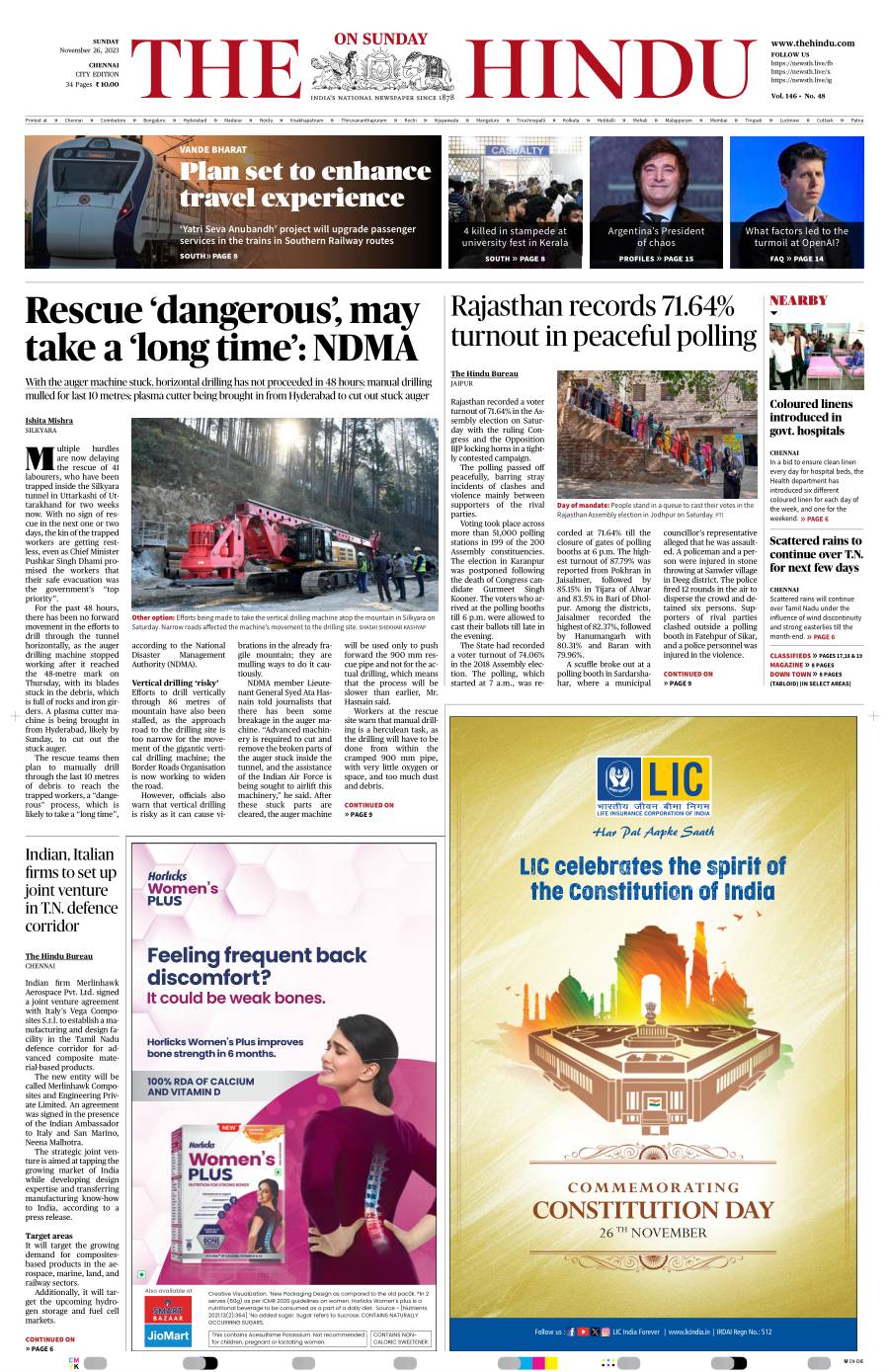“What's in a name” written by Kalpana Sharma ( The Hindu , March 7, 2010) highlights the problems faced by women when their names change after marriage. Men too experience difficulties when they go abroad. She says in south India the issue of surnames does not arise as people use initials. The expansion of initials given in the passport in place of surnames poses problems outside India.
In the passport, there are only two parts to furnish the name of the passport holder. The “surname” appears first. The actual name comes next under “Given name”.
Different systems are followed in India in giving a name to a person. Confusions and complications arise when we are asked to fill in various official forms in our country – first name, middle name, last name, surname, given name are some examples. I was asked to furnish my “pet name” in one of our private banks.
My son who is abroad went to the department concerned to collect his driving licence. The traffic police officer was issuing the licence one by one. Then he started calling Sekhaari, Sekhaari and Sekhaari and gave up. As no one turned up, my son surmised that the name called might be the shortened version of Sekharipuram, our native village. He was right and got his driving licence! He says he is unable to get anything done in the first attempt due to the misspelling of his expanded initials by the officials concerned and he has to go to the same department two or three times to get it rectified. I can understand his predicament but I am helpless. My brother's son who is staying in U.K. is Ramesh Subramanian as given in the passport. I asked him how the natives call him. He simply said with a smile they just call him “Ramesh Submarine man”. My cousin in Germany was called Mr. Kalpathy. Kalpathy is a name of a town!
In south India, normally the first letter of the initials indicates the native place of the person and the second letter the name of the person's father and the person's real name is pushed to the end. The culprit behind this system is the person's school leaving certificate. In some other forms, for want of space the name of the person or a part of it is mercilessly cut.
The expansion of the initials of a person leads to hilarious situations on some occasions. When I was in the U.S., a friend of mine was booked for some small violation of traffic rules and was asked to report to the traffic offence court to pay the required fine. As per the passport, his name was too long and it was Thirunindravur Srinivasachari Thothadhri. When the judge fumbled to pronounce his name, the entire court started laughing. His name was a blessing in disguise. The judge pronounced his verdict saying that he need not pay the fine as he could not read his name properly. However, he asked him to see a short documentary film on traffic rules and then go home!
I would request the passport authorities to slightly alter the all-important first page of the passport. The name of the passport holder should appear first and the surname should appear next. This is the minimum change required. As written by Ms Sharma, I also ask why so much importance is given to the surname? I know it will be difficult even to make a small change in the passport which is an international document and we have to inform all the countries in the world about the change.
The given name first and the surname next will also help people living in other parts of India. “Maiden name” for women and the “given name” for men would be simpler in the long run. However at the age of 76, I feel I have to join the LKG class again to answer the question “What is your name”?






COMMents
SHARE
READ LATER